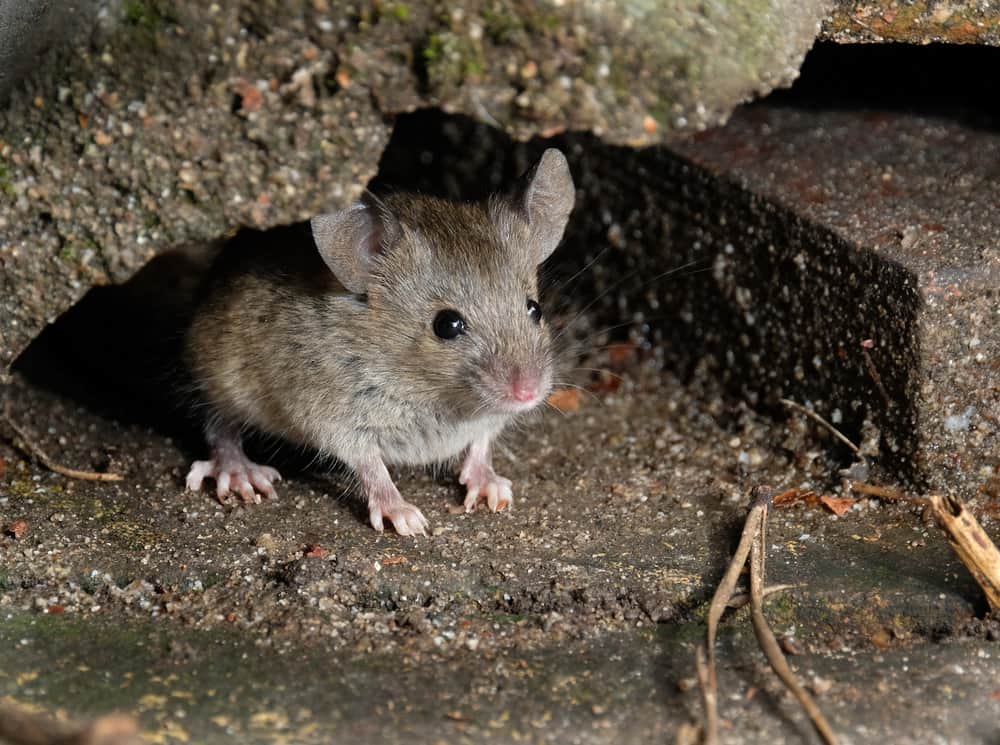It’s widely known that mice can wander into your home, but can they actually get under your house? If you have a crawl space, the short answer is “yes.” Learn about the damage they can cause to your crawl space and find out how to help get rid of mice in (or under) your home.

What Species of Mice Invade Homes?
There are a few species of mice commonly found in the United States, but perhaps the most frequent home invader is the house mouse (no surprise there). These rodents typically make their way into homes during the fall in search of food. As the temperatures cool, the seeds and plants they feed on become scarce.
These mice rarely exceed two inches in length, and they are gray in color. They’re extremely adept climbers, and they can fit through cracks and holes about the size of a dime. All of this means that it might be easier for them to gain entry into your home than you thought. They can crawl under garage doors, around cables and through gable vents.
Why Do Mice Invade Crawl Spaces?
Crawl spaces are open areas constructed below houses without basements, and they are typically found in older traditional homes, pre-fab homes and modular homes. While they offer easy access to structural elements of the home, crawl spaces can attract pests if they are not properly maintained. Rodents, as well as insects like termites and cockroaches, can infest crawl spaces through small openings. Additionally, moisture may build up in crawl spaces, leading to damp conditions and mold, which can also attract certain pests.
If mice are present in your crawl space, then they can damage your home by chewing on insulation, gnawing on wires and destroying air ducts. They may even use wiring, plumbing and ductwork as pathways into other areas of your house.
How to Spot a Mouse Infestation
Worried about mice under your house? There are a few signs to look out for if you decide to go into your crawl space:
- Mouse droppings or urine
- Nests made of paper or insulation
- Disturbed insulation or wiring
- Ducts, insulation or wiring covered in bite marks
Unfortunately, a crawl space isn’t the only place you might encounter mice in your house. These rodents can make a home in your garage or even in your walls. If you hear scratching, squeaking or scurrying noises at night (mice are nocturnal), you may have some extra company.
How to Help Prevent Mouse Infestations
Mouse infestations can be difficult to control, and mice reproduce rapidly, meaning there may be more in your home than you think. Mice can also carry pathogens that may cause disease, so if you find them in your home, it can be a serious situation. You can help prevent an infestation by doing the following:
- Seal any cracks or holes on the outside of your home that are larger than one-quarter of an inch – wire mesh or quick-drying cement are often the most effective fixes (they’re not appropriate in all situations)
- Trim ivy and branches – these can provide mice with easy access to the house
- Keep trash cans tightly sealed
- Store food in airtight containers
- Move wood piles, leaves, rubble and firewood away from your foundation or crawl space access point
Because mice can be difficult to track down and DIY methods can be costly and ineffective, professional assistance is often the best course of action for dealing with an infestation. The professionals at Terminix® know how to help keep mice away from your home. Contact Terminix today for help.



